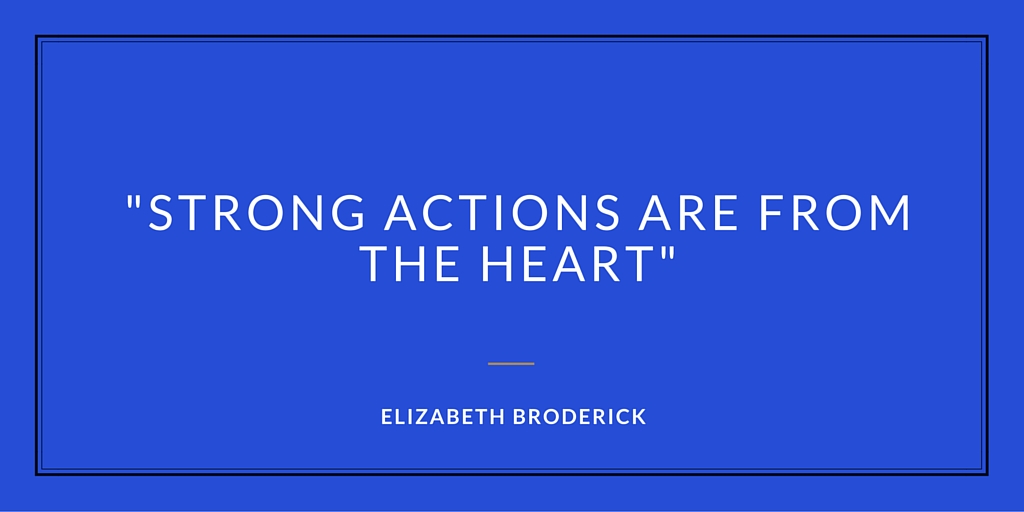
Get your FREE 30-day trial.
Start by selecting a product:
Two weeks ago, Salesforce Melbourne World Tour started strong, with a panel on gender equality. The discussion really emphasised the importance for businesses to act now. More importantly, for everyone to take part in the fight for gender equality in business - both men and women.
Moderated by ABC journalist Leigh Sales, panelists included: former Australian Sex Discrimination Commissioner, Elizabeth Broderick: Executive Director of UN Women Australia, Janelle Weissman; Andrew Stevens, Non Executive Director Male Champions of Change; Senior Executive Vice President for Qantas Airways, Vanessa Hudson and Wendy Johnstone VP Marketing Salesforce APAC.
As an employee at Salesforce, I’ve seen how deeply we are committed to providing equal opportunities and equal pay to men and women in the same role. As mentioned on the panel, this is not a minority issue, as women make up more than 50% of the Australian population1. Gender diversity in the workplace is a human issue and a critical factor for the growth and development of every business.
These are the points that resonated with me the most from the conversations:
Setting Goals is Crucial for Making Progress in Gender Balance
The gender balance conversation, especially around leadership opportunities has been happening for about 20 years now. What struck our panel is how little progress has been made in companies where no metrics have been attached to the discussion.
It’s not enough to start the discussion and make sure your staff and leaders are aware of their biases (which we ALL have). It needs to be tied to action, it needs to be tied to metrics. Simply saying we need to hire more women hasn’t yielded results. It’s time to set goals for the entire organisation, and also for every department within the organisation.
Naturally, some areas are more gender skewed one way or another. By providing equally aggressive targets proportionally for the leadership team and for other areas of your organisation, you are acknowledging that it may take longer for certain areas to reach a well-balanced mix, as well as sending the message that this is a real business problem. Just like your revenue growth targets, a diverse workforce needs a number attached to it for the business to be accountable.
Domestic Violence IS a Workplace Issue
The panel discussed the importance of offering a supportive workplace when it comes to domestic violence. To my surprise, as many as one third of women in Australia will experience violence in their lifetime2. As we strive to offer equal opportunities to both men and women, work is often the safe haven for those victims of abuse at home. Former commissioner Elizabeth Broderick discussed the importance of not turning a blind eye to warning signs but also to offering a confidential support system to those who may not want to share their struggles openly.
Act Now!
The overall message from the panel really focused on actions. Key steps you as an individual can take today include:
Becoming aware of your own unconscious biases to make sure they do not cloud your judgement when assessing a situation/ candidate. This can be achieved through formal training, which a lot of organisations now offer or as a good starting point. Salesforce routinely delivers unconscious bias training for all of its managers. Harvard University, alongside other major US Universities, has put together “Project Implicit”, which offers insight into how we relate genders to career. You can select the “Gender-Career IAT test from here.
Even something as simple as ensuring you share the load of chores at home equally. Too often, women are still in charge of a higher load of chores in the house leaving them less time to focus on their work and feeling more pressure through social expectations to nurture children.
Offering real partnership alternatives between families and government through affordable childcare services is another key item to support the Australian economy in becoming more gender balance. The countries that have the greatest gender diversity in the workplace (e.g. Scandinavian countries) provide universal access to childcare as a key aspect of helping women succeed in their careers and stay in the workforce.

During this inspirational session, I learned that gender diversity is not about women overtaking men, or about promoting women simply to achieve gender balance. It’s about recognising that each gender provides equally valuable skills to the workforce, especially in leadership. It’s about breaking the societal expectations and gender roles that are set from a very young age.
In a society where more women graduate from university than men, Australia will miss out and lose a competitive advantage if it doesn’t use all available talent. It makes business sense, it’s the right thing to do. Follow your heart and take action, today.